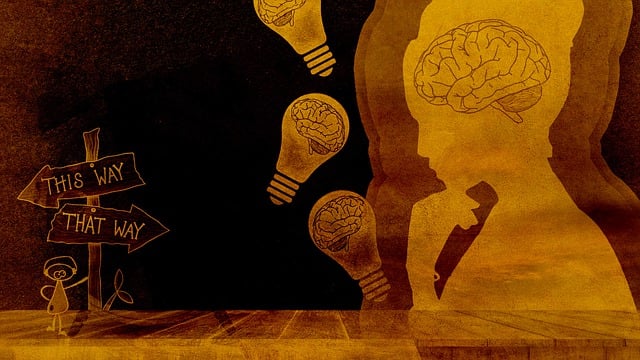Cultural competency in healthcare, highlighted by programs like Denver Gambling Therapy, is crucial for providing tailored, sensitive support to patients from diverse backgrounds. By understanding and respecting cultural norms, therapists can adapt communication, therapy styles, and treatment plans, fostering trust and improving outcomes. Effective training involves interactive workshops, case studies, and role-playing, focusing on deep cultural understanding and empathy. Continuous evaluation through assessments, focus groups, and interviews ensures program relevance and effectiveness, reducing stigma and fostering inclusive communities. Denver Gambling Therapy exemplifies this holistic approach to treating gambling disorders while promoting overall well-being.
Healthcare provider cultural competency training is an essential framework in modern medical practice, especially within diverse communities like Denver. This article explores the critical need for such training, focusing on its impact in local gambling therapy settings. We delve into effective strategies for educating healthcare providers on cultural awareness and highlight the importance of continuous evaluation to ensure successful outcomes. By understanding and addressing cultural competencies, Denver Gambling Therapy can offer more inclusive and effective care.
- Understanding Cultural Competency in Healthcare: A Necessary Framework
- The Impact of Cultural Sensitivity in Denver's Gambling Therapy Settings
- Effective Training Strategies for Healthcare Providers on Cultural Awareness
- Continuous Evaluation and Improvement: Measuring Success in Cultural Competency Training Programs
Understanding Cultural Competency in Healthcare: A Necessary Framework

Cultural competency in healthcare is a crucial framework that recognizes and respects the diverse cultural backgrounds and beliefs of patients. In today’s diverse society, healthcare providers must be equipped to deliver care that is sensitive and responsive to these differences. This involves understanding not just cultural norms but also the role they play in shaping health outcomes. For instance, Denver Gambling Therapy, as a specialized service, requires cultural competency to address unique challenges faced by individuals from various ethnic and cultural groups with gambling addiction.
This competence goes beyond mere awareness; it involves adapting communication styles, therapeutic approaches, and treatment plans to meet the specific needs of each patient. It is a dynamic process that requires continuous learning and self-reflection. The development of confidence-boosting mental wellness journaling exercise guidance and coaching programs can play a significant role in enhancing cultural competency. These tools not only support individual growth but also foster an environment where patients feel heard, understood, and respected, ultimately improving healthcare outcomes.
The Impact of Cultural Sensitivity in Denver's Gambling Therapy Settings

In Denver’s gambling therapy settings, cultural sensitivity plays a pivotal role in providing effective support to a diverse range of clients. The impact of culturally competent care is profound, fostering an environment that not only respects but also embraces the unique backgrounds and experiences of individuals seeking treatment for gambling-related issues. This approach significantly enhances the overall therapeutic process, ensuring that every patient feels understood and valued.
By integrating communication strategies tailored to diverse cultural contexts, therapists can establish stronger connections with their clients. This involves learning and adopting effective cross-cultural communication techniques, which facilitate open dialogue and build trust. Moreover, recognizing and incorporating stress reduction methods and trauma support services sensitive to various cultural perspectives further enriches the therapeutic experience. Such a holistic approach not only addresses gambling disorders but also promotes healing by considering the interconnectedness of mental health, cultural identity, and well-being.
Effective Training Strategies for Healthcare Providers on Cultural Awareness

Effective training strategies for healthcare providers on cultural awareness should go beyond superficial knowledge and encourage deep understanding and empathy. Interactive workshops, case studies, and role-playing scenarios can help Denver Gambling Therapy professionals navigate complex cultural interactions with sensitivity. By participating in these dynamic activities, providers can gain insights into diverse belief systems, values, and communication styles, fostering a more inclusive healthcare environment.
Integrating topics like self-esteem improvement and risk assessment for mental health professionals within the training curriculum is crucial. These elements empower healthcare providers to address cultural barriers effectively while considering individual psychological factors. Well-rounded training equips professionals with the tools to deliver personalized care, ensuring that every patient receives respectful, culturally competent treatment, regardless of their background or identity.
Continuous Evaluation and Improvement: Measuring Success in Cultural Competency Training Programs

Effective cultural competency training programs recognize that continuous evaluation and improvement are essential to measure success. This involves regularly assessing participants’ knowledge, attitudes, and behaviors before, during, and after the training to ensure lasting impact. By employing various methods such as pre- and post-training assessments, focus groups, and follow-up interviews, programs can gauge the extent to which learners have internalized new insights and applied them in their interactions with diverse communities. For instance, Denver Gambling Therapy might assess changes in communication strategies following training, noting improvements in cultural sensitivity and positive thinking among practitioners.
Moreover, evaluating outcomes related to mental illness stigma reduction efforts is crucial. Programs that successfully foster cultural competency should lead to decreased stigmatization and increased empathy towards individuals from different backgrounds. Continuous feedback loops enable trainers to adapt their approaches, ensuring the program remains relevant and effective over time. This dynamic process not only enhances the quality of care provided by healthcare professionals but also contributes to building inclusive communities where everyone feels valued and respected.
Cultural competency training is a game-changer in healthcare, especially within specialized settings like Denver Gambling Therapy. By equipping providers with effective awareness strategies, we can enhance patient care and outcomes. The impact of cultural sensitivity, as evidenced in Denver’s gambling therapy contexts, underscores the importance of continuous evaluation and improvement in training programs. Through measuring success and adapting practices, we ensure that healthcare remains accessible and responsive to a diverse range of patients, ultimately fostering a more inclusive and effective healthcare system.














